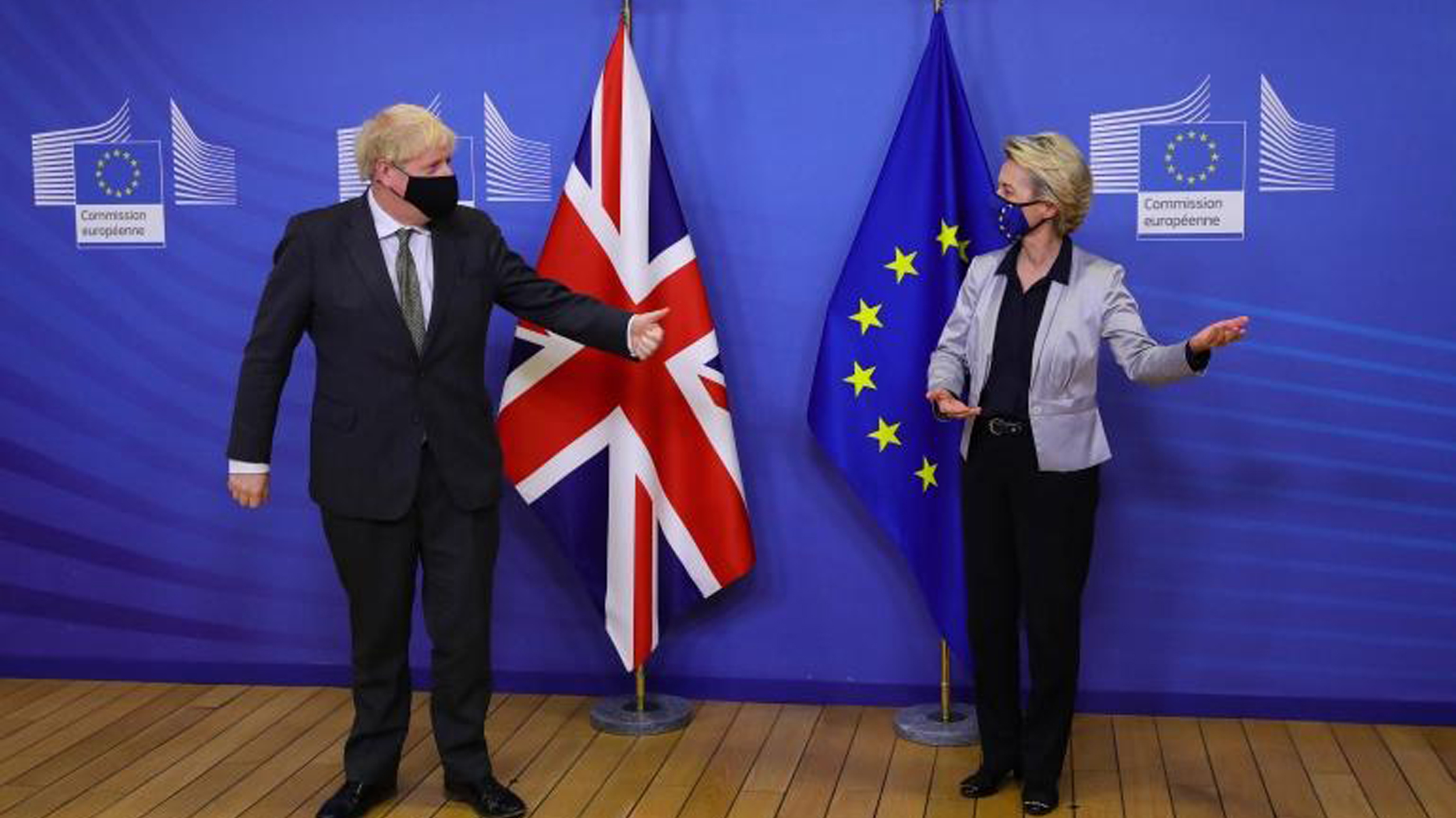
On 31 December 2020, at 11 pm GMT, the United Kingdom officially left the European Union after nearly a half century as a member of the European Common Market and then the EU. Just days before, on 24 December, it was announced that the UK and EU had finally reached a trade agreement following a year of intensive negotiations. The path to the last-minute deal was likely eased by France’s decision to close all border crossings with the UK on 21 December, after British authorities announced the discovery of a new, more transmissible strain of Covid-19. Within hours, cargo-laden trucks began piling up at the Dover and Calais ports, setting off rumours of impending food and medication shortages and throwing into stark relief the dangers of a no-deal Brexit. This, combined with the threat a hard Brexit posed to his own political future, encouraged British Prime Minister Boris Johnson to redouble efforts to reach an agreement before year’s end.
Yet, although the trade deal forestalled the hard Brexit many feared, it fell short of the smooth exit some hoped for that would essentially preserve most of the benefits of EU membership while giving the UK greater trade independence and saving it billions of pounds annually in EU dues.
The agreement provides for continued trade between the two parties, amounting to hundreds of billions of pounds annually without major quotas or customs duties. It also regulates cooperation in the fields of security, crime, and information exchange. But British exporters will nevertheless pay additional costs and time to get their products to European markets, and the agreement does not cover services, which account for 65 percent of the British economy, including financial services. While pro-Brexiters argued in 2016 that the EU as an institution had become a costly, sluggish bureaucracy that must be abandoned, Britain’s new relationship with the EU is going to be no less complex and bureaucratic, as the details of pending issues not addressed by the agreement are hammered out by a joint council of 25 specialised committees.
Moreover, Brexit has generated new threats to British unity. British nationalists in Northern Ireland see the newly drawn EU-UK border in the Irish Sea as a potential prelude to Irish unification, and the hopes of Scottish nationalists, who narrowly lost the 2014 referendum for Scottish independence, have been buoyed.
Brexit will no doubt have some adverse consequences for both the UK and the EU. The exit of a major economic, military and diplomatic force like Great Britain will have a tangible impact on the EU’s international prestige and role. It also lends weight to other EU member states’ calls for reform or slower integration, although the complexity and costs of Brexit are likely to act as a deterrent to other EU members considering their own exit.
For the UK, British officials say they have already negotiated free trade agreements with 63 other states, including the United States, but claims that this will usher in a new era of independence and freedom for a global Britain are surely exaggerated. Over the long term, Britain will most certainly establish alternate economic and trade relations, but the pro-Brexit British elite seems not to realise that the imperial past cannot be restored and that without accepting continued close ties to the EU, the UK will be the weaker party in any of its relations with non-European economic powers.
The UK also lost its ability to influence Europe’s political direction, which went a long way to preserving Britain’s heightened international role. Thus far, there are no signs that Brexit will bring Washington and London closer and that such a close political alliance would allow the UK to maintain is global influence. In recent decades, and especially after the Iraq war, the United States has shown less eagerness to accommodate or heed its Western allies.